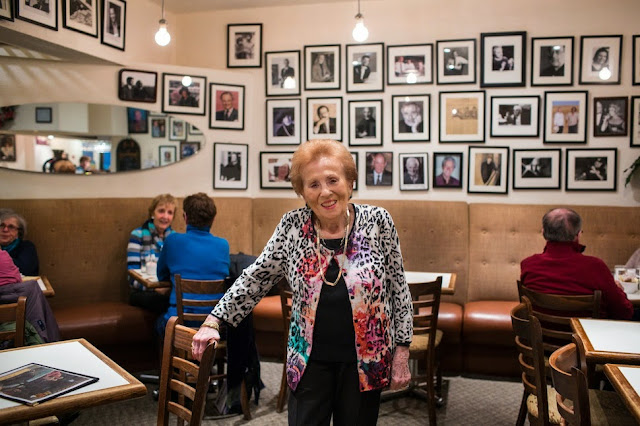A Thirst for the Small-Batch Coffee Roasters and Other Independents Hits Town
Fire Roasted, Locomotive, Las Chicas and Hasbeans
A Thirst for the Small-Batch Coffee Roasters and
Other Independents Hits Town
Locomotive Espresso
Lately there has been an unprecedented increase of upmarket cafés that are
part grab-and-go café, part bakery, and part casual dine-in restaurant, some of
which are licensed. The quest of
coffee drinkers for artisanal, small hand-batched roasts with diverse flavour
profiles is unmatched. It has been recently suggested that in addition to its
other well-documented effects, a cup of coffee will improve your memory.
Hasbeans is operated by the hospitable Smith family, who have been Covent
Garden Market merchants for more than 125 years. Their coffee business
continues to be hands-on with Paul (third generation), Debbie (fourth) and Joel
(fifth).
While promoting the distinct
qualities that each coffee bean develops in its natural environment, Hasbeans’
stalwart owners and staff have become a Covent Garden Market institution for
their fair trade offerings and personalized service. Hasbeans’ hand-selected
and imported coffees are offered as both green (raw) and roasted coffee beans.
The Little Red Roaster was initially opened in 1995 and operated by
former restaurateurs Anne and Archie Chisholm of Anthony’s Seafood Bistro. The
Wortley Road location became a local institution and was the original café in what
became a chain of independently owned franchises. Kendra Gordon-Green purchased
the venture in 2002, adding several franchised Little Red Roaster locations in
the downtown core, most notably at the Covent Garden Market and at the Central
Library.
Entrepreneur Dave Cook started The Fire Roasted Coffee Co. in 2006. He had been
roasting his own coffee beans in his garage, and launched Fire Roasted Coffee
as a Saturday business at the Western Fair Farmers Market. Cook took over as
owner of the market operation two years later and began to build his business
portfolio. More recently he opened a flagship café (and his complementary
business, Habitual Chocolate) in a renovated heritage building at King and
Talbot streets. Just last month Cook opened another satellite Fire Roasted
location in Wortley Village, in premises formerly occupied by The Little Red
Roaster.
Cook leverages his expertise,
networks and knowledge in order to shape a strong and enabling environment for
social enterprise. Cook’s core business belief embraces the philosophy of
supporting and mentoring people committed to sourcing quality products and invested
in their place of origin. In the interest of global justice, Fire Roasted
Coffee has established direct trade with producing countries to benefit the producers
in a more substantial way.
Fire Roasted had supplied coffee to the nearby Black Walnut Bakery Café but
that affiliation recently came to a halt. Cook approached Gordon-Green of the Little
Red Roaster to give Fire Roasted a sustained presence and a higher profile in
Wortley Village. Cook realizes
that this location might have a limited shelf-life, as there are plans to
expand Home Hardware into that space in the future. In the meantime, he views
the Wortley Road location like a pop-up restaurant where he is able to create a
different niche and new identity in the neighbourhood.
Sisters Maria and Valeria Fiallos -Soliman operate the coffee micro-roaster, Las Chicas del Café, on Exeter Road, which opened in 2005. The Fiallos family has been defined by coffee for generations, starting with their great-grandfather on the family's coffee plantation in Las Sabanas, Nicaragua. The family was forced to flee Nicaragua in the 1980s during that country's civil war, finally settling in London, Ontario in 1988. The sisters’ parents were eventually able to return to Nicaragua and re-establish the family's coffee growing tradition with their mission of "quality, tradition and responsibility." Today, plantation workers hand-pick, sun-dry and manually bag their annual harvest of dense, flavour-packed beans and send them to London to be roasted.
Fire Roasted Coffee
Sisters Maria and Valeria Fiallos -Soliman operate the coffee micro-roaster, Las Chicas del Café, on Exeter Road, which opened in 2005. The Fiallos family has been defined by coffee for generations, starting with their great-grandfather on the family's coffee plantation in Las Sabanas, Nicaragua. The family was forced to flee Nicaragua in the 1980s during that country's civil war, finally settling in London, Ontario in 1988. The sisters’ parents were eventually able to return to Nicaragua and re-establish the family's coffee growing tradition with their mission of "quality, tradition and responsibility." Today, plantation workers hand-pick, sun-dry and manually bag their annual harvest of dense, flavour-packed beans and send them to London to be roasted.
Charles and Jill Wright opened Locomotive Espresso in a building
that has been a neighbourhood variety store for 45 years. Locomotive baristas
have received strict training in Pilot Coffee Roaster's Toronto espresso
laboratory. Pilot took top honours in this year’s Roast Magazine's annual
Roaster of the Year competition saying, “Pilot’s exemplary marketing practices
and dedication to offering quality coffee — evidenced by its education
practices and construction of a state-of-the-art coffee-tasting lab — propelled
the company to a win”.
Locomotive Espresso opened its doors mid-February
looking to fill a growing worldwide thirst for local, independent coffee bars
serving the highest quality beverages. Its direct trade beans will be
featured along with other “visiting” roasts from similarly skilled roasters. Locomotive
is located at the corner of Pall Mall and Colborne at the railroad tracks, in
the former Helen's Variety.
More and more it is worth embracing independents and small-batch
artisanal coffee roasters. These types of businesses provide core commitments
to quality, relationships and hands-on service. The coffee trade appears to be
further inspired to leverage economics with social enterprise and environmental
responsibility by their conduct, rather than driving profit by how they market
themselves.





Comments
Post a Comment